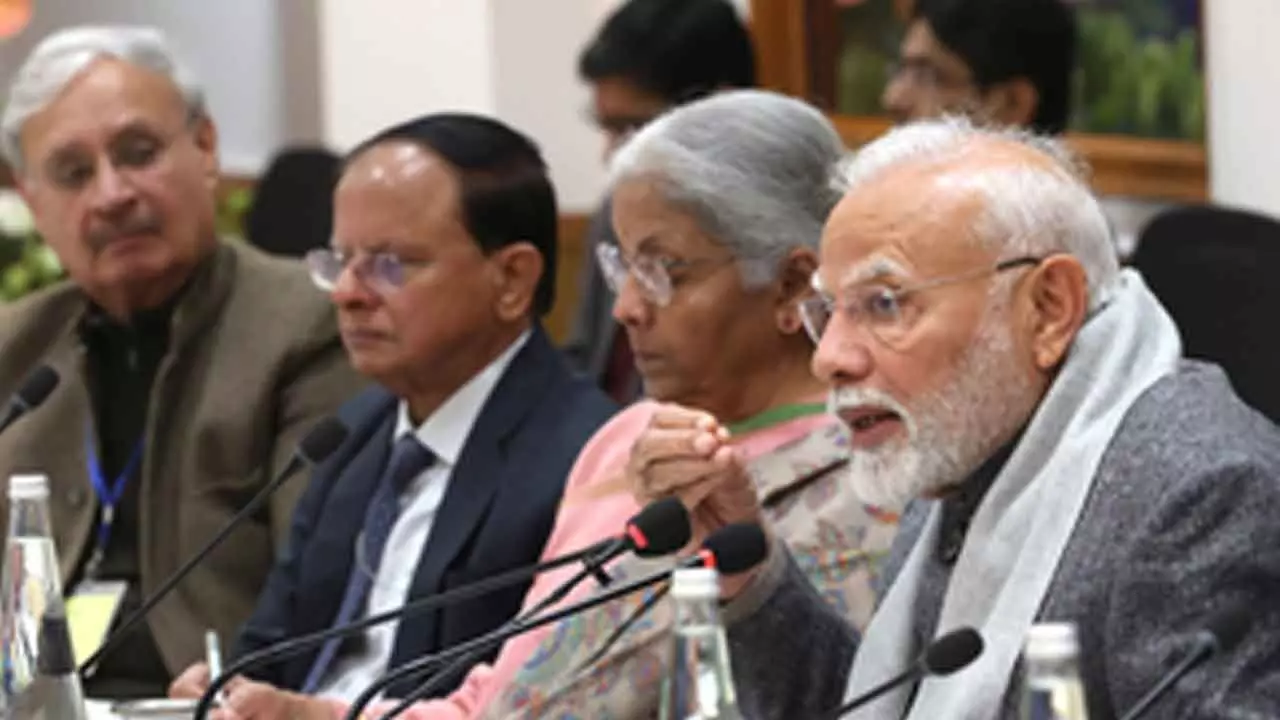PM Seeks Suggestions From Economists On Budget
FM will present Budget-2025 on Feb 1; India retained its status as fastest growing economy
PM Narendra Modi chairs a meeting with FM, economists and sectoral experts at NITI Aayog, in New Delhi on Tuesday

New Delhi: Prime Minister Narendra Modi on Monday held a meeting with eminent economists and sectoral experts to get their views and suggestions for the upcoming Budget for 2025-26. Finance Minister Nirmala Sitharaman is scheduled to present the budget in the Lok Sabha on February 1, 2025.
The Finance Minister was also present at the meeting which was attended by Niti Aayog Vice Chairman Suman Bery, Niti Aayog CEO BVR Subrahmanyam, Chief Economic Advisor Anantha Nageswaran and eminent economists, including Surjit Bhalla and DK Joshi.
The meeting comes in the backdrop of the government’s plans to continue with big-ticket investments in infrastructure projects to spur growth and create more jobs in a slowing economy.
The Centre has launched various welfare schemes for the poor including free foodgrains and providing housing for the poor sections in both rural and urban areas. The budget is now expected to give a fiscal stimulus to accelerate growth in the economy. India has retained its status as the fastest growing major economy in the world and the buoyancy in tax collections has helped to ensure stability with the fiscal deficit well under control. This will strengthen the government’s hands in preparing the next budget.
The spike in inflation has eased in the last month as food inflation has slowed, allowing the RBI to cut the cash reserve ratio (CRR) for banks by 0.5 per cent from 4.5 per cent to 4 per cent. This is the first time since March 2020 that the CRR has been cut, which will infuse Rs1.16 lakh crore into the banking system and bring down market interest rates.
India’s net direct tax collections, comprising corporate tax and personal income tax, shot up by a robust 15.4 per cent to Rs12.1 lakh crore, from April 1 to November 10 during the current financial year, according to the latest figures released by the Central Board of Direct Taxes (CBDT).
The Centre’s fiscal deficit at the end of the first seven months (April-October) of the current financial year works out to 46.5 per cent of the full-year target, the official data released last month shows.
This reflects a strong macroeconomic financial position with the government sticking to the fiscal consolidation path.

